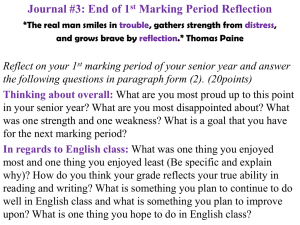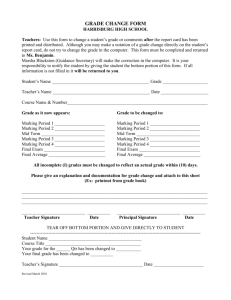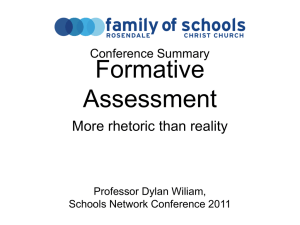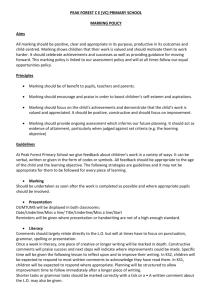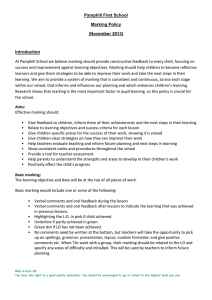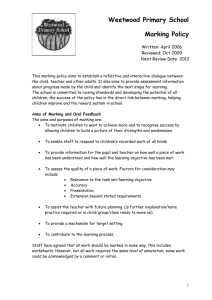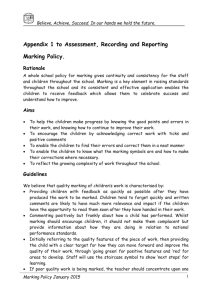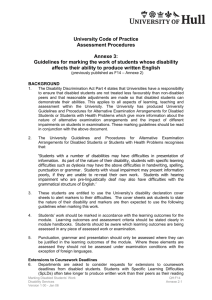Summary of marking policy - Hutton Church of England Primary
advertisement
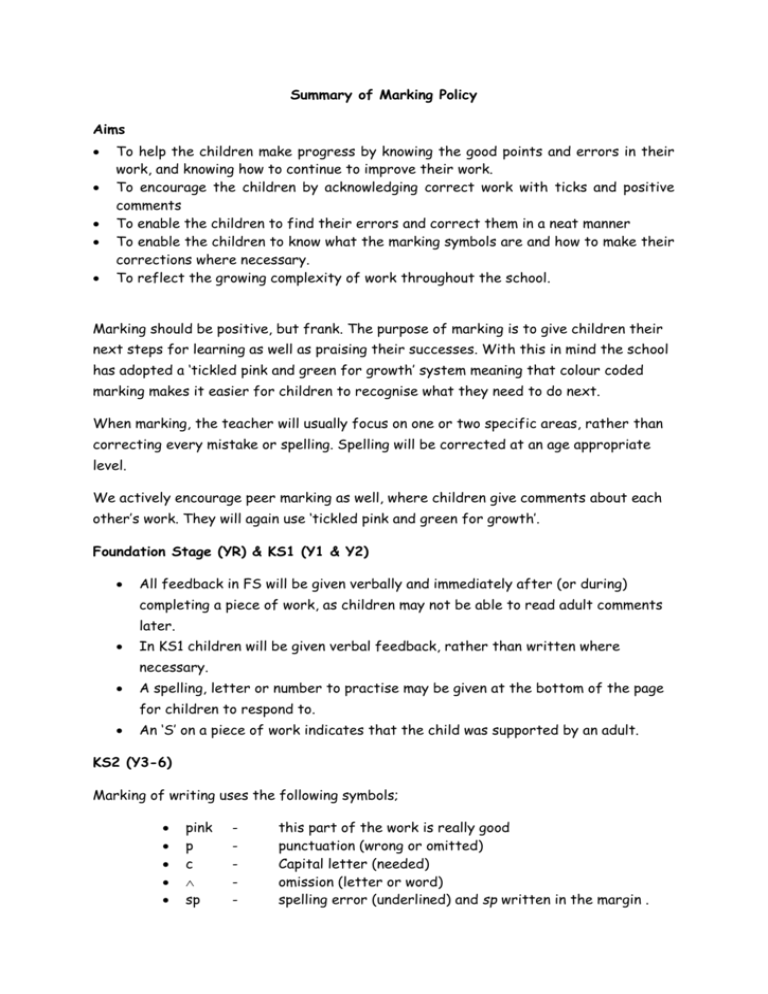
Summary of Marking Policy Aims To help the children make progress by knowing the good points and errors in their work, and knowing how to continue to improve their work. To encourage the children by acknowledging correct work with ticks and positive comments To enable the children to find their errors and correct them in a neat manner To enable the children to know what the marking symbols are and how to make their corrections where necessary. To reflect the growing complexity of work throughout the school. Marking should be positive, but frank. The purpose of marking is to give children their next steps for learning as well as praising their successes. With this in mind the school has adopted a ‘tickled pink and green for growth’ system meaning that colour coded marking makes it easier for children to recognise what they need to do next. When marking, the teacher will usually focus on one or two specific areas, rather than correcting every mistake or spelling. Spelling will be corrected at an age appropriate level. We actively encourage peer marking as well, where children give comments about each other’s work. They will again use ‘tickled pink and green for growth’. Foundation Stage (YR) & KS1 (Y1 & Y2) All feedback in FS will be given verbally and immediately after (or during) completing a piece of work, as children may not be able to read adult comments later. In KS1 children will be given verbal feedback, rather than written where necessary. A spelling, letter or number to practise may be given at the bottom of the page for children to respond to. An ‘S’ on a piece of work indicates that the child was supported by an adult. KS2 (Y3-6) Marking of writing uses the following symbols; pink p c sp - this part of the work is really good punctuation (wrong or omitted) Capital letter (needed) omission (letter or word) spelling error (underlined) and sp written in the margin . // paragraphs T target – not met your target Spelling will be listed for children to practise
